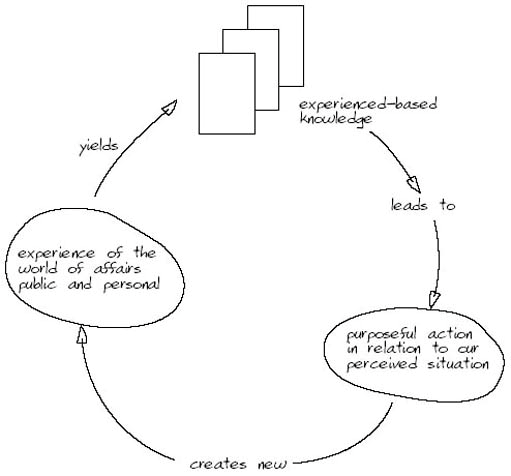4 Creating experience-action cycles
Some systems practitioners have found the thinking associated with goal-oriented behaviour to be unhelpful when dealing with messes. This has resulted in a move away from goal-oriented thinking towards thinking in terms of learning. Some of these trends are depicted in Table 1 but also arise out of a cycle of activity such as that as described in Figure 3. If this cycle is completed, the purposeful action can be aimed at intended improvements; improvements that are judged by those who take the action. Those involved in this process learn their way to new understandings of the situation from which decisions about change can be made. Many systems approaches are designed to facilitate this cycle of learning.
If a system is conceptualised as a result of the purposeful behaviour of a group of interested observers, it can be said to emerge out of the conversations and actions of those involved. It is these conversations that produce the purpose, and hence the conceptualisation of the system. What it is and what its measures of performance are will be determined by the stakeholders involved.

Sometimes there is no agreement on what the system of interest is or what purpose it is seen to have. This seems to me to be a common occurrence. For example, there is no shortage of experts, organisations, agencies, governments, and so on engaged in the definition and derivation of targets, principles, indicators and standards against which the achievement of the measures of performance of a supposed system might be evaluated, monitored and audited – but little agreement, or even discussion, about purpose. In other words many people have a propensity to pursue purposive behaviour that assumes both purpose and measures of performance rather than engaging stakeholders in a dialogue in which purpose is jointly negotiated. This can have unfortunate consequences.
